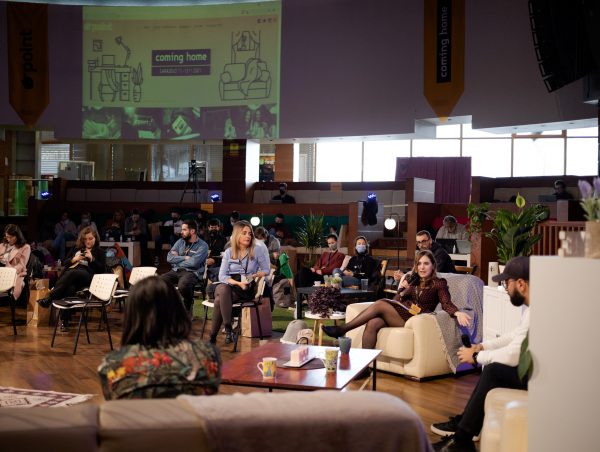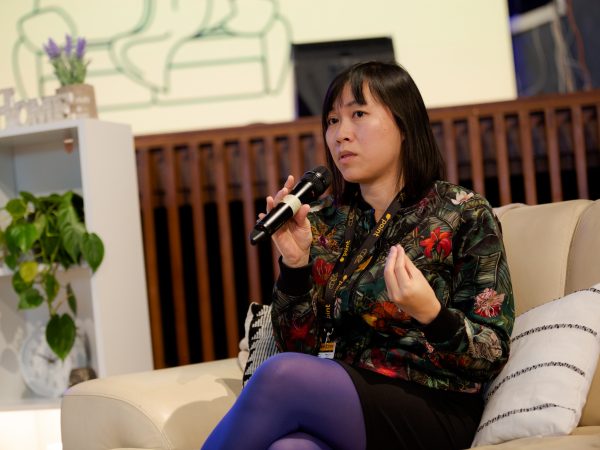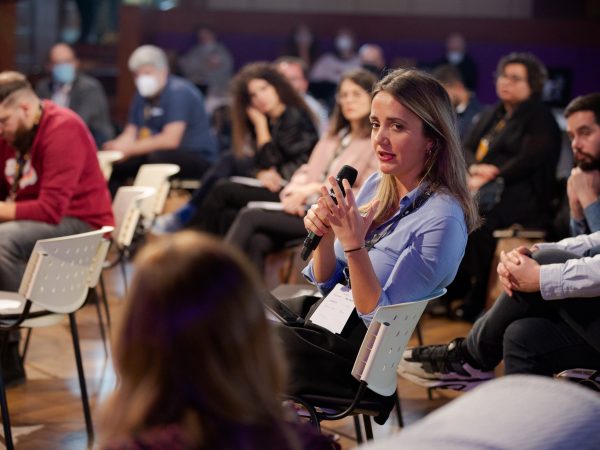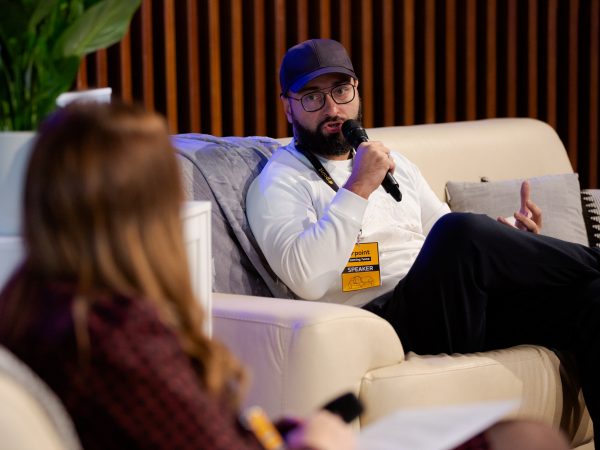Work Reimagined: Individual needs and teamwork
The Work Reimagined session, moderated by CA Why Not’s program manager Danira Karović, gathered progressive young speakers to discuss the future and reimagination of work. The session’s speakers discussed the advantages and disadvantages of offline/online/hybrid modes of operation, organization of meetings, teamwork in different conditions and models of work, use of online tools, working hours and aspects of the same when working from home, etc.

The Work Reimagined was the first POINT coming home conference session moderated by CA Why Not’s project manager Danira Karović. The session speakers were Faris Začina, the co-founder and CEO of Ministry of Programming, Vân Anh Dam from INCO Polska and Danijela Bobić from UNDP. Unfortunately, Will Stronge from Autonomy, who was also supposed to speak, could not join the conference.
At the beginning of the session, Karović pointed out that the topic of work reimagination is close to us because it is still happening. We all needed to switch to a hybrid work environment and most of us worked from home. She invited the session speakers to share their experiences when it comes to all the changes we faced in the last more than a year as of now.
Vân Anh Dam said that the new ways of work expanded the need for trust and engagement with each of the team members. Managers and others had to be even more transparent about their decision-making and had to make everyone feel included. She also stated that the situation showed a need for a lot of empathy and creation of such work atmosphere that makes everyone feel as comfortable as possible.

Faris Začina stated that his company introduced the work from home model back in 2015, right as they started believing that it was a good idea. Their experience showed that the people wanted it, deserving the freedom. Their work model meant removing work hours and giving everyone the space they need to organize their own work since the office is optional as well. Therefore, the pandemic did not really change anything for them, the productivity was great, but the problem they encountered was mental health. The way the tackled this issue was by introducing the psychologists.
Danijela Bobić from UNDP pointed out that the pandemic was a learning process for everyone. The biggest change was the increase of global collaboration since, as Bobić pointed out, it brought people together. She also stated that the online tools sometimes lack the ability to provide the collaboration we want, so we need to give more thought to how we use them in order to have the collaboration feel natural.

The session speakers also discussed the issue of onboarding new team members during the pandemic, while working from home.
One of the Work reimagined session speakers, Van Anh Dam from INCO Polska, pointed out that online cooperation expanded the need to consider each employee’s individual needs and capabilities.
The speakers agreed that the individual needs of employees are fundamental and need to be considered to have a successful work-from-home model.
The current dominant philosophy of individualism is here to stay, and we need to adapt the work environment – said Faris Začina, the co-founder and CEO of the Ministry of Programming.

Danijela Bobić pointed out that the challenging times of pandemic mean that we need to adapt to the changing circumstances, and we have to be observant and agile.
Burnout is not only about the workload, and the time you spend working, it is also about the overwhelming information and emotional pressure we feel – said Bobić.
Ahn Dam pointed out that the individual approach assumes that we need to understand ourselves and what we need.
Humanity presents the best results in teams, not just as individuals. The future of work is not an individual working alone, but a coordinated team acknowledging the individual needs – said Faris Začina from the Ministry of Programming.
That being said, the speakers agreed that we need to involve past radical individualism.
Danijela Bobić from UNDP also pointed out that what we are seeing now is the decentralization of the global labour market, which brings a lot of opportunities for people and local communities.
The last thing discussed during the session was the possibility of introducing a four-day workweek and shorter work hours.
Speakers agreed that although it is a good alternative, it does not work for everyone. There are types of businesses that would be unable to adapt to such a work model without having negative impacts.
The session ended on the note that businesses need to start considering their employees’ individual needs to have a successful and happy team.